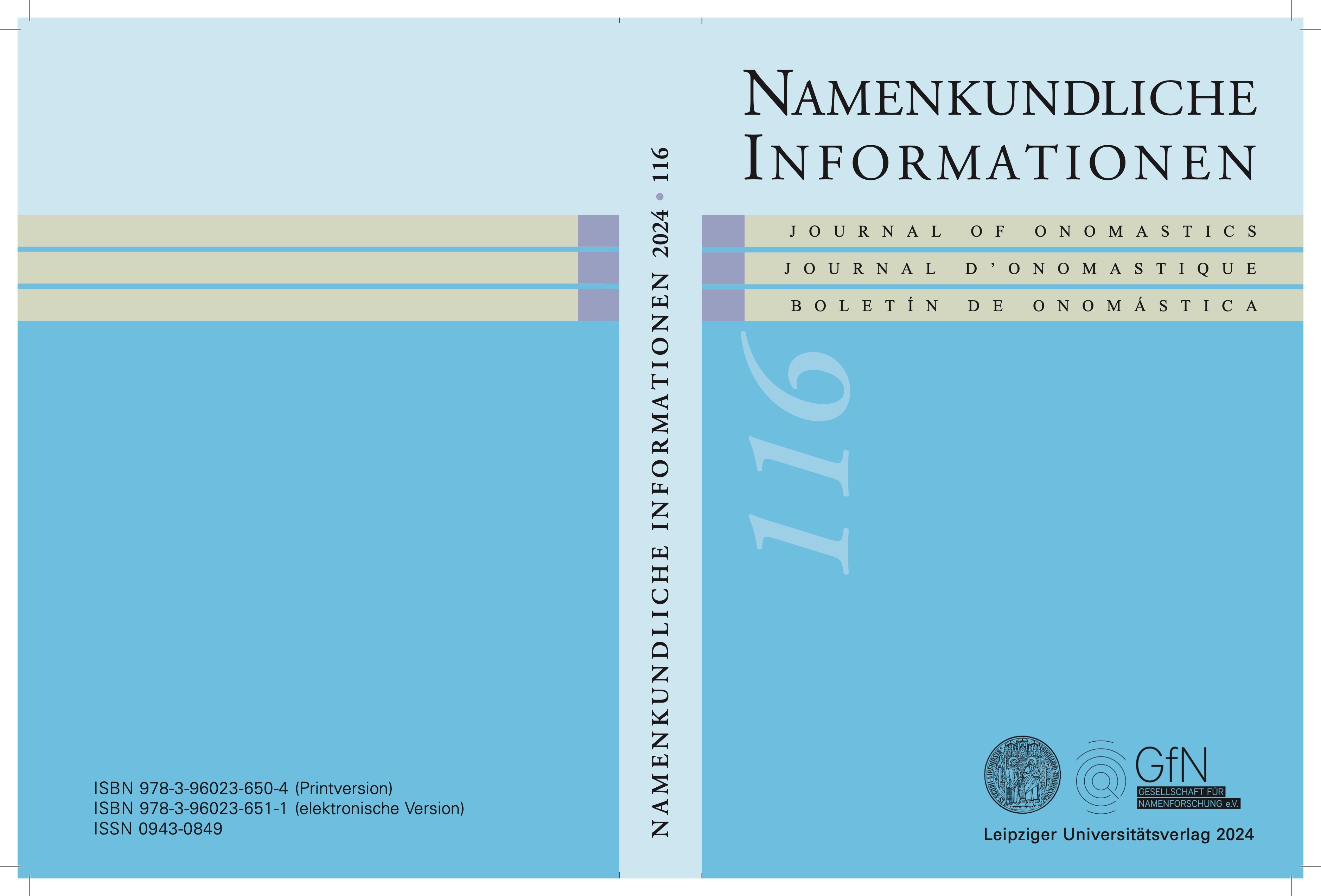The linguistic-historical significance of the field name variants in the Heppenheim Mark descriptions
DOI:
https://doi.org/10.58938/ni749Abstract
Among the surviving early medieval boundary descriptions from the
German-speaking area, descriptions that are preserved in two versions are relatively
rare. These include the two descriptions of the Mark Heppenheim, in which
the majority of the field names mentioned as boundary points are identical, even
though some names have different spellings. Although interpretations of these
Namenkundliche Informationen 116 © 2024 is licensed under CC BY 4.0
Flurnamenvarianten in den Heppenheimer Markbeschreibungen
25
names exist, there is no comprehensive study of the name variants. In this article,
the field name variants from the Heppenheim descriptions are therefore first de-
scribed linguistically with regard to their graphic, phonic, semantic and morpho-
logical characteristics, and then explained from a linguistic-historical perspective.
Several possible explanations suggest themselves for the name variants, most of
which can apply simultaneously: In some cases, it is purely written variation, but
in most cases there are influences from more recent language stages and/or regio-
nal varieties. Latin-Romance interference is also possible, but uncertain. It is also
noticeable that the first and older description contains more recent forms of the
names, while the second, more recent description contains older forms.
Downloads
Published
Issue
Section
License
Copyright (c) 2024 Daria Aeberhard

This work is licensed under a Creative Commons Attribution 4.0 International License.
Es findet keine exklusive Übertragung von Verwertungsrechten (Copyright Transfer) an die Zeitschrift statt. Die Autor/innen stimmen bei Manuskripteinreichung der Veröffentlichung unter der Lizenz Creative Commons Attribution 4.0 International zu.


